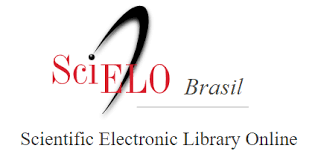O terroir como categoria geográfica: origem e abordagens conceituais.
Terroir as a geographical category: origin and conceptual approaches
DOI:
https://doi.org/10.22481/rg.v6.e2022.e11291Keywords:
Terroir, Taste of the earth, Territory, GlobalizationAbstract
The concept of terroir translated as "gut da terre" has been discussed in the spheres of traditional agricultural production theory as opposed to the globalization of agriculture. Although the concept does not have a literal translation, its origin is ancient but consolidated in France, specifically in viticulture and brings many questions in an attempt to apply to other cultures. The article searches in foreign literature the concept and forms of maintenance of the terroir called natural in contraposition to the conception of what it called technological terroir, based on a large production. The article defends the small property as an example of the natural terroir from the characteristics that involve the physical conditions such as soil and climate.
Downloads
References
ARNOLD, ROB. The terroir of whiskey. A Distiller’s Journey into the Flavor of Place. Columbia University Press / New York, 2021.
CAREY, Victoria Anne. The use of viticultural terroir units for dem arcation of geographical indications for wine production in Stellenbosch and surrounds. Dissertation (PhD (Agric)) -- Stellenbosch University, Cape Ocidental, South Africa. 2005.
GLADSTONES, John S. Wine, terroir and climate change. National Library of Australia Cataloguing-in-Publication entry. Kent Town South Australia, 2011.
MANASI, Kumar. ANUP, Dhar. ANURAG, Mishra. (org). Psychoanalysis from the Indian Terroir. British Library Cataloguing in Publication Information Available. Lexington Books, EUA, 2017
MATTHEWS, Mark Allen. Terroir and other myths of winegrowing. Oakland, Califórni: University of Califórnia Press, 2015.
PARKER. Thomas. Tasting French Terroir: the history of an idea. Library of Congress Cataloging-in-Publication. California studies in food and culture, University of California Press, Oakland, California, 2015.
PATTERSON, Tim.Wine and placa: a terroir reader. University of California Press. Oakland, California, 2018.
SOMMERS, Brian J. The geography of wine: how landscapes, cultures, terroir, and the weather make a good drop. A Plume Book. London, 2008
TOMASI, Diego, GAIOTTI, Federica, JONES, Gregory V. The Power of the Terroir: the Case Study of Prosecco Wine, Springer Basel, 2013.
TORRES, Olivier. The wine wars: the Mondavi affair, globalization and “terroir”. Palgrave Macmillan, Nova Iorque 2006. Traduzido do Francês para o inglês por Kirsty Snaith
TRUBEK, Amy B. The taste of place: a cultural journey into terroir. University of California Press. California, EUA, 2008.
Downloads
Published
Issue
Section
License
Copyright (c) 2022 Geopauta

This work is licensed under a Creative Commons Attribution 4.0 International License.
Dos Direitos Autorais
Os autores mantêm os direitos autorais de forma irrestrita e concedem à Geopauta a primeira publicação com o trabalho simultaneamente licenciado em CC BY, que permite que outros compartilhem com reconhecimento da autoria de cada autor na publicação inicial nesta revista.
Propriedade Intelectual e Termos de uso
A Geopauta adota a política de Acesso Livre em Conformidade com o Acesso Aberto- OAC recomendado pelo DOAJ e em conformidade com os Critérios SciELO, sob uma licença Creative Commons CC By Attribution 4.0 International License, permitindo acesso gratuito imediato ao trabalho e permitindo que qualquer usuário leia, baixe, copie, distribua, imprima, pesquise ou vincule aos textos completos dos artigos, rastreie-os para indexação, passe-os como dados para software ou use-os para qualquer outra finalidade legal.
A Geopauta atribui a licença CC BY. onde é permitido sem restrições:
Compartilhar — copiar e redistribuir o material em qualquer suporte ou formato para qualquer fim, mesmo que comercial. desde que lhe atribuam o devido crédito pela criação original.
Adaptar — remixar, transformar, e criar a partir do material para qualquer fim, mesmo que comercial desde que lhe atribuam o devido crédito pela criação original.














